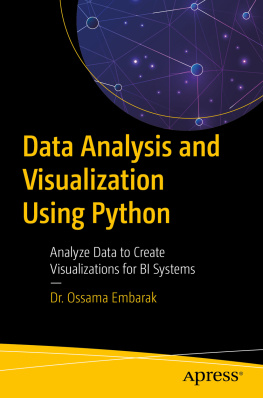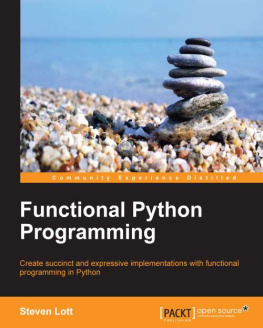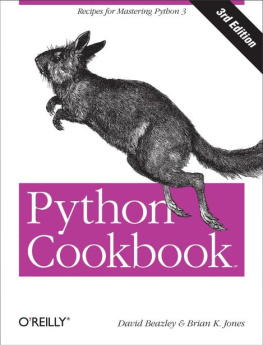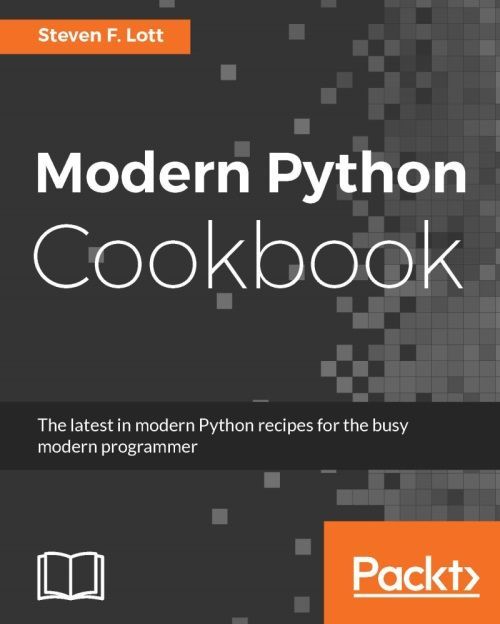Hes currently leveraging Python to implement microservices and ETL pipelines. His other titles with Packt Publishing include Python Essentials , Mastering Object-Oriented Python , Functional Python Programming , and Python for Secret Agents .
Steven is currently a technomad who lives in various places on the east coast of the U.S. His technology blog is http://slott-softwarearchitect.blogspot.com and his LinkedIn address is https://www.linkedin.com/in/steven-lott-029835 .
About the Reviewers
Sanjeev Jaiswal is a computer graduate with 7 years of industrial experience in web development and cyber security. He basically uses Perl, Python, and GNU/Linux for his day-to-day activities. He is currently working on projects involving penetration testing, source code review, and security design and implementations.
He is very much interested in web and cloud security. You can follow him on Twitter at @aliencoders and on GitHub at https://github.com/jassics .
He has written Instant PageSpeed Optimization and co-authored Learning Django Web Development for Packt Publishing. He has reviewed more than 5 books for Packt Publishing and looks forward to authoring or reviewing more books for Packt Publishing and other publishers.
Vahid Mirjalili is a software engineer and data scientist, currently working towards his PhD study in Computer Science at Michigan State University. His research at the i-PRoBE (integrated pattern recognition and biometrics) lab involves attribute classification of face images from large image datasets.
Furthermore, he teaches Python programming as well as computing concepts for data analysis and databases. Owing to his specialty in data mining, he is very interested in predictive modeling and getting insights from data. He is also a Python developer and likes to contribute to the open source community.
Moreover, he enjoys making tutorials for different directions of data science and computer algorithms, which can be found in his GitHub repository at http://github.com/mirjalil/DataScience .
www.PacktPub.com
For support files and downloads related to your book, please visit www.PacktPub.com .
Did you know that Packt offers eBook versions of every book published, with PDF and ePub files available? You can upgrade to the eBook version at www.PacktPub.com and as a print book customer, you are entitled to a discount on the eBook copy. Get in touch with us at service@packtpub.com for more details.
At www.PacktPub.com , you can also read a collection of free technical articles, sign up for a range of free newsletters and receive exclusive discounts and offers on Packt books and eBooks.
https://www.packtpub.com/mapt
Get the most in-demand software skills with Mapt. Mapt gives you full access to all Packt books and video courses, as well as industry-leading tools to help you plan your personal development and advance your career.
Why subscribe?
- Fully searchable across every book published by Packt
- Copy and paste, print, and bookmark content
- On demand and accessible via a web browser
Preface
Python is the preferred choice of developers, engineers, data scientists, and hobbyists everywhere. It is a great scripting language that can power your applications and provide great speed, safety, and scalability. By exposing Python as a series of simple recipes, you can gain insights into specific language features in a particular context. Having a tangible context helps make the language or standard library feature easier to understand.
This book takes a recipe-based approach, where each recipe addresses specific problems and issues.
What this book covers
, Numbers, Strings, and Tuples , will look at the different kinds of numbers, work with strings, use tuples, and use the essential built-in types in Python. We will also exploit the full power of the Unicode character set.
, Statements and Syntax , will cover some basics of creating script files first. Then well move on to looking at some of the complex statements, including if, while, for, try, with, and raise.
, Function Definitions , will look at a number of function definition techniques. Well also look at the Python 3.5 typing module and see how we can create more formal annotations for our functions.
, Built-in Data Structures list, set, dict , will look at an overview of the various structures that are available and what problems they solve. From there, we can look at lists, dictionaries, and sets in detail, and also look at some more advanced topics related to how Python handles references to objects.




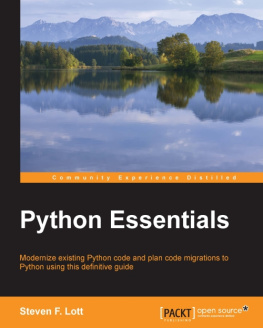
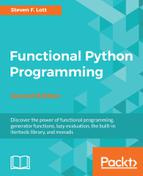

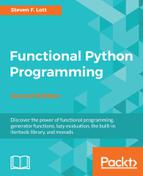
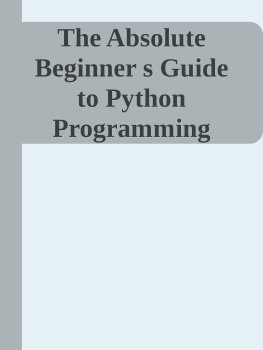
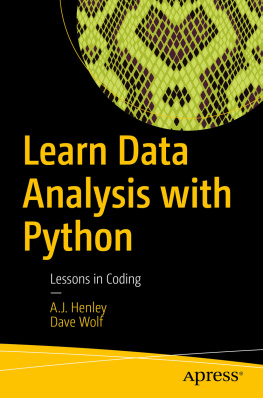
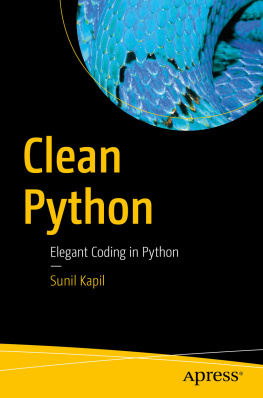
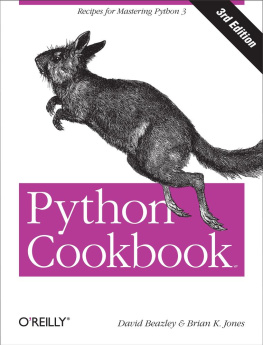
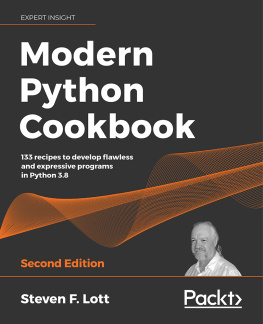
![Paul Gerrard [Paul Gerrard] - Lean Python: Learn Just Enough Python to Build Useful Tools](/uploads/posts/book/124061/thumbs/paul-gerrard-paul-gerrard-lean-python-learn.jpg)
